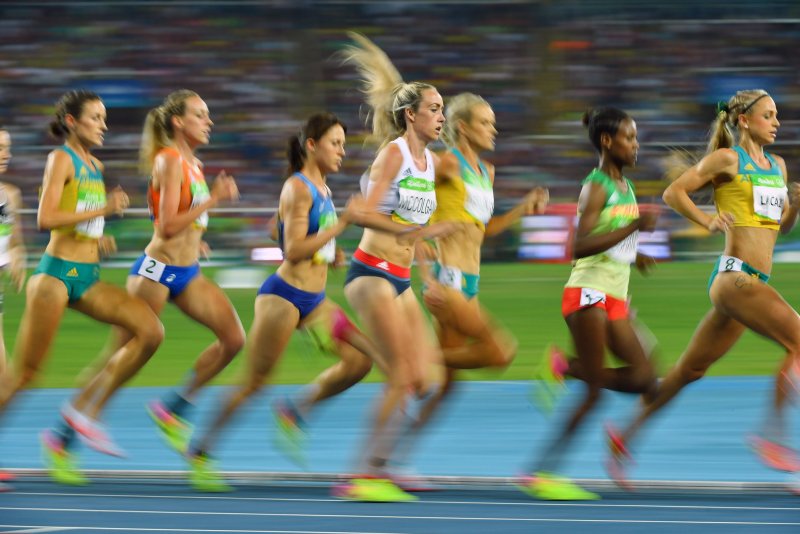New research suggests swishing, but not swallowing, a sugar solution during a medium-distance run boosts performance. Photo by Kevin Dietsch/UPI |
License Photo
Feb. 15 (UPI) -- There may be a performance enhancing substance hiding beneath the bathroom sink. New research suggests a few gargles of a sugary solution, like mouthwash, offers a performance boost for endurance athletes.
When scientists had marathon runners swish, but not ingest, a basic sugar solution during a timed trial, they measured a 5 percent improvement in performance.
"It was surprising to us how drastic the improvement in times was," Jamie Cooper, an associate professor food and nutrition at the University of Georgia, said in a news release. "These were endurance-trained individuals, so to see a 5 percent improvement in performance -- almost three minutes on average -- was huge."
The experiment featured a 7.9-mile time trial on an indoor track. Nine men and seven women completed the trial four times, swigging a solution eight times over the course of each run. Each of the four trials featured a different solution.
Runners swigged a basic sucrose solution made with table sugar. They also swished two solutions made with sucralose, an artificial sweetener -- one high-intensity and one low-intensity, both offering a sweet taste but no energy. The fourth solution, and control, was water.
Only the sucrose solution offered a performance boost.
"It's more the presence of energy in the mouth rinse than it is the sweet taste," Cooper said. "Sweet taste might have a small effect because we did have some trends for differences, but the energy definitely seems to be the main driving force behind it."
Scientists believe the taste of the energy solution triggers reward zones in the brain related to motor control. Cooper and her colleagues plan to test different types of energy sources in future tests.
The time trial results were published in the International Journal of Sports Physiology and Performance.
"If someone is doing a marathon, this is not going to help them -- they need to take in carbohydrates because they need the calories in their body," Cooper said. "But if someone is going to run a 10K or 15K or they're a cyclist who's doing a 20-mile time trial or even a sprint triathlon, if they do a mouth rinse with a sweet-tasting carbohydrate, they should see some improvements in performance."















